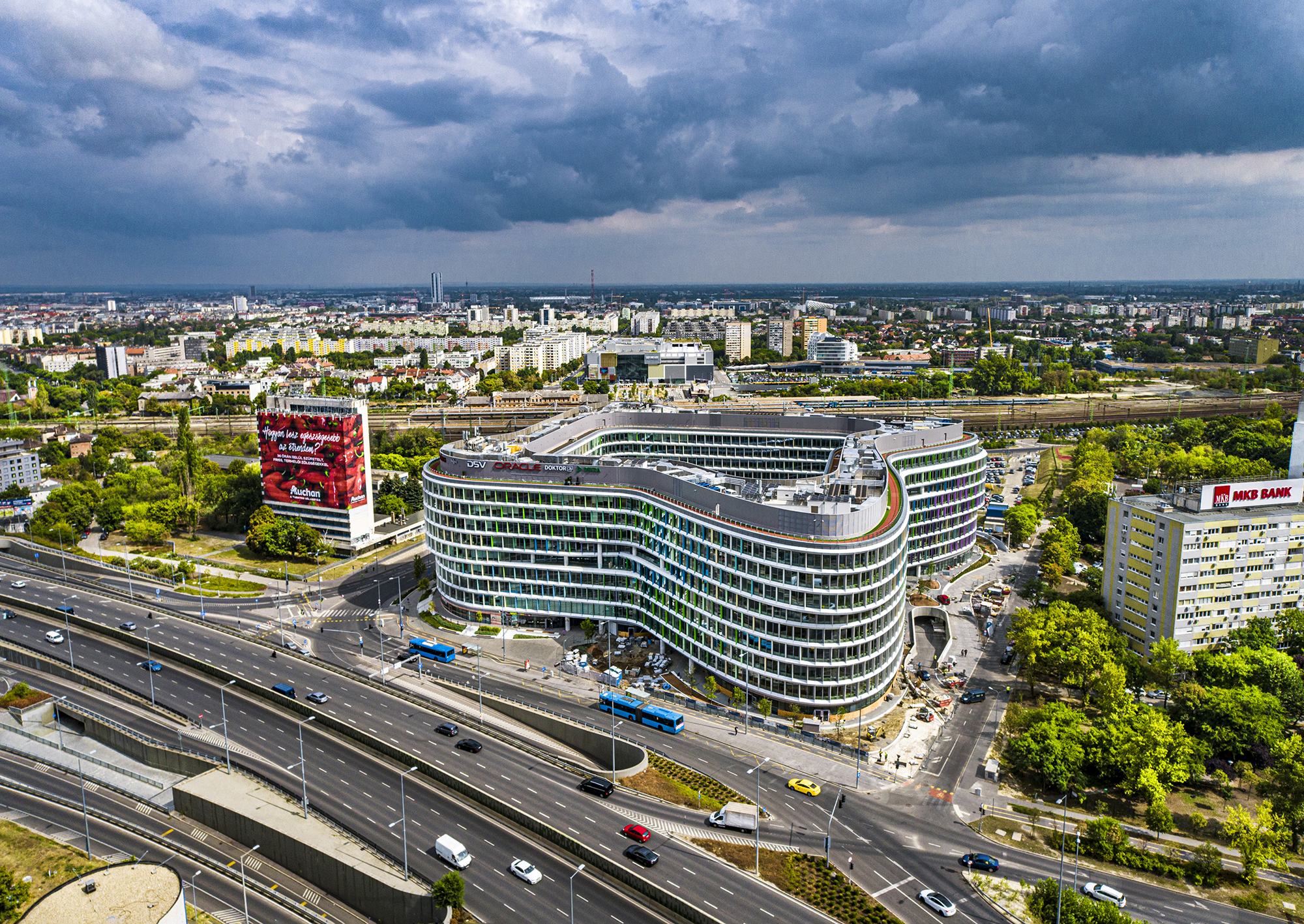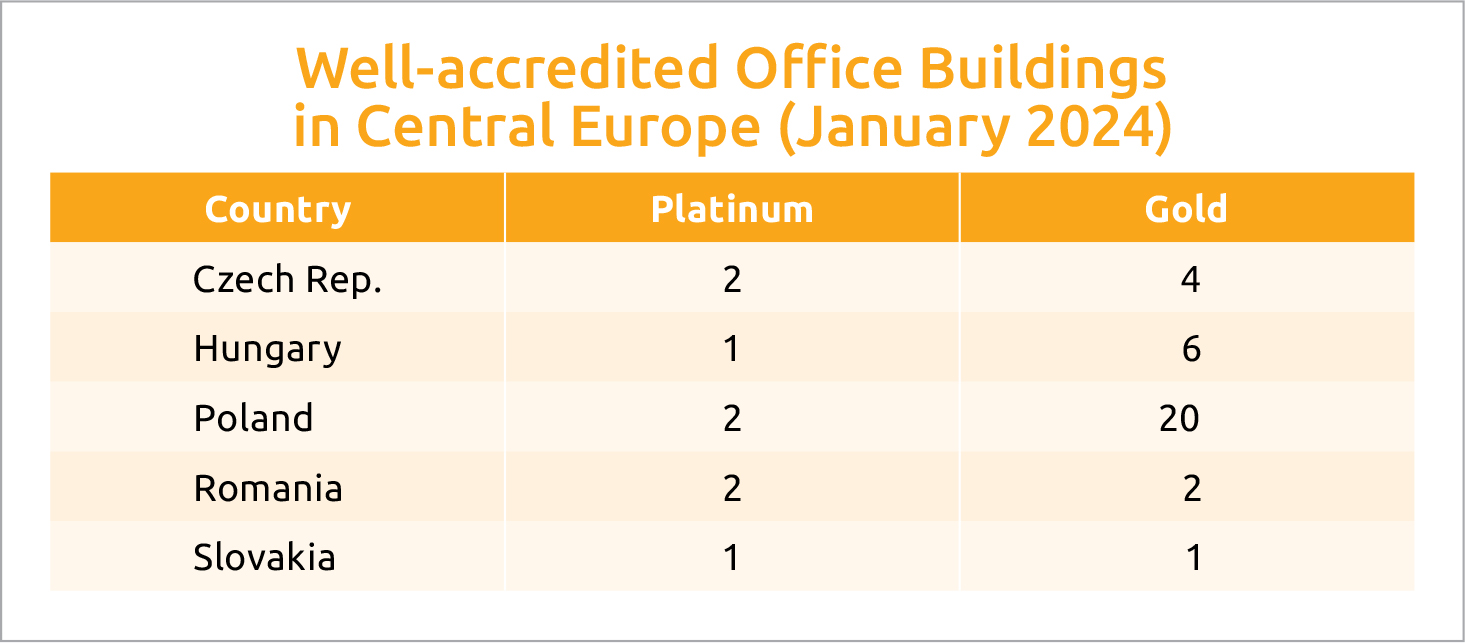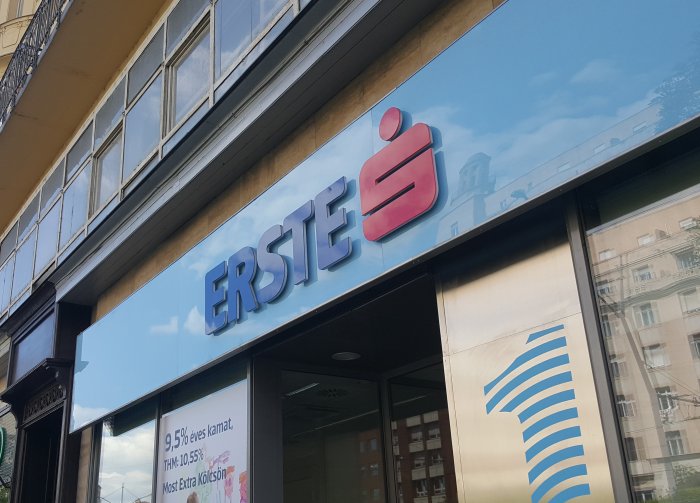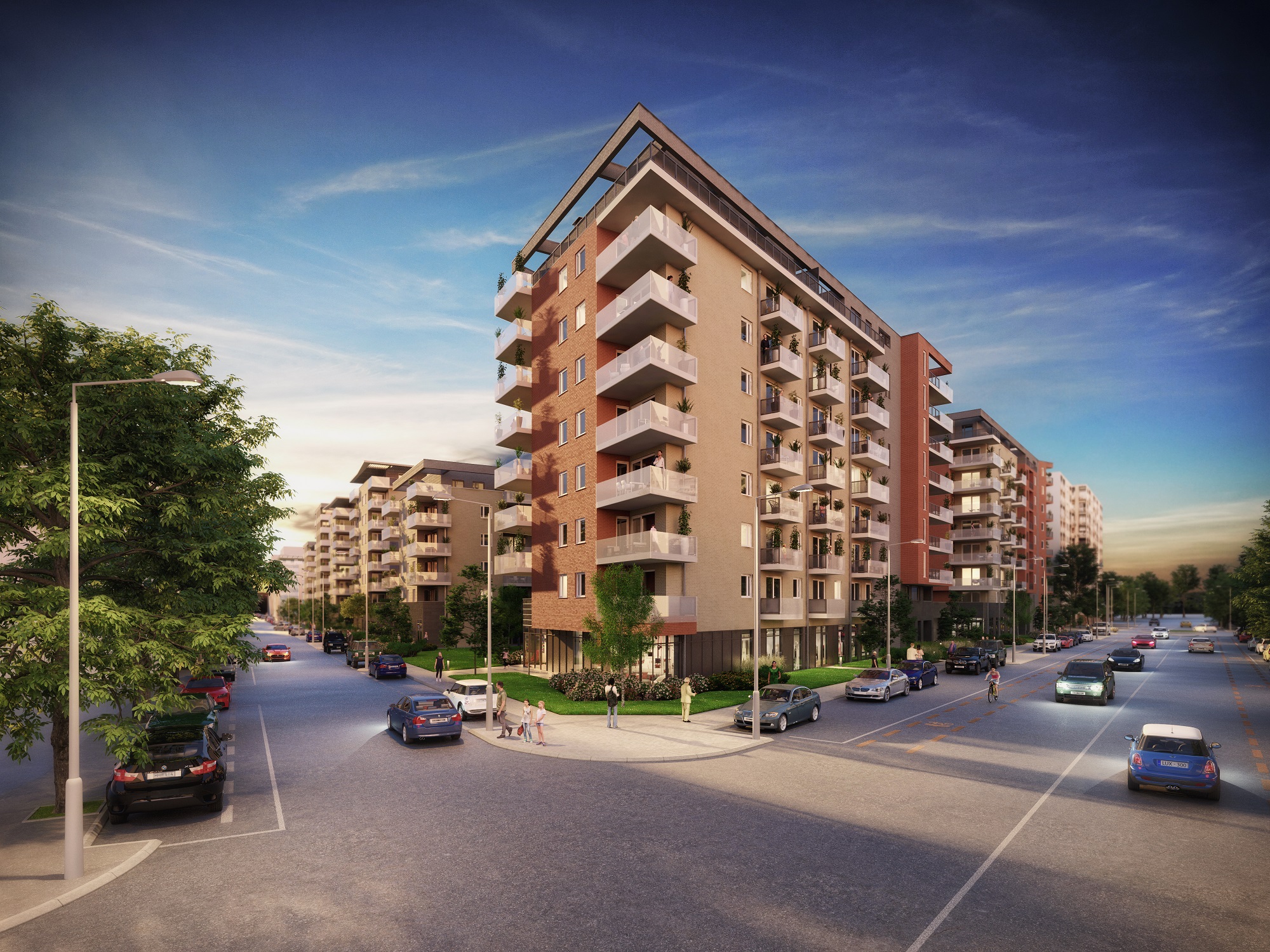Budapest One Achieves Well ‘Platinum’ Accreditation

Budapest One
The 25,000 sqm Budapest One project has become the first office complex in Hungary to be awarded the highest possible Well “Platinum” certification.
A further two phases at the complex will deliver an additional 40,000 sqm of space at the business park. Developer Futureal says its policy is to develop all its offices in accordance with accreditation standards for Well, a third-party organization dedicated to the interior environment and its impact on office occupants.
“Well at Scale is for business leaders who want to prioritize health and well-being across their entire organization or real estate portfolio,” explains Regina Kurucz, sustainability consultant and qualified Well assessor.
“It is not impossible for a tenant to get [their office] Well certified in a non-certified building, but the Well Core Certification of the building makes the process much easier and quicker. Therefore, I expect an increase in the number of Well-certified office buildings in Budapest,” she comments.
“Right now, seven buildings are Well Core certified in Budapest, and seven others are Well pre-certified. The number of Well-certified spaces has a constant increase of 13-15% every quarter in Europe. This shows the demand for healthy spaces is not losing interest,” Kurucz says.
“Our buildings, the places and spaces where we spend the vast majority of our time, hold the key to protecting our families, businesses and the wider public. A wealth of rigorous research highlights the profound role buildings play in promoting human health, preventing disease and supporting well-being,” the assessor notes.
“Several key factors within buildings, including indoor air quality, water quality, thermal comfort, acoustics, lighting, materials, and access to physical activity and healthy foods, have a direct influence on shaping positive health outcomes,” she says.
A large and growing body of research demonstrates that adopting healthy building practices can drive numerous health, economic and societal benefits, Kurucz adds.
Certification is increasingly the norm for new developments and refurbishments at the higher end of the office markets in Hungary and Central Europe. The spread of the Breeam and Leed third-party accreditation systems is seen as a sign of the growing concern with interiors and health issues as part of ESG.

Panattoni Park Cheb South ‘Outstanding’
The Panattoni Park Cheb South has achieved Breeam “Outstanding” New Construction accreditation with a 94.2% score, according to the regional logistics park developer and operator.
“A modern industrial facility at Panattoni Park Cheb South has become the most environmentally friendly industrial building in the world,” the developer says. The 40,000 sqm project is a logistics center for the German online auto parts distributor Autodoc.
“It underscores that modern industrial construction in the Czech Republic truly has the highest global standards and places strong emphasis on responsibility towards the environment and local communities,” adds Pavel Sovicka, managing director of Panattoni for the Czech Republic and Slovakia.
The factory boasts greenery, low water maintenance, an outdoor gym, plus a dining and relaxation area. The complex was built on a brownfield site, and energy consumption has fallen by 59% compared with the reference state, resulting in a 68% decline in the level of CO2 emissions generated by the building, Panattoni says. The complex is only the seventh Breeam “Outstanding” building in Europe.
Banks Must Disclose Green Asset Ratio
With so much attention being paid to ESG, real estate and related industries must adapt and adjust to meet the legislative demands being raised. 2024 is particularly historic, as banks have to disclose their Green Asset Ratio for the previous year for the first time, says Kevin Turpin, director of Colliers CEE.
“The Green Asset Ratio informs what percentage of banks’ financial asset base is taxonomy-aligned. That is why there is a significant spotlight on taxonomy-aligned investments right now, both from banks and investment funds,” he adds.
Typically, many building owners, developers and occupiers start by looking at their carbon and sustainability footprint and how they can reduce the negative impact of a property, but also where it could have a positive effect within ESG.
Solar Energy Plus Program Initiated
The government’s HUF 75 billion Solar Energy Plus Program has achieved 17,000 pre-registration requests. The scheme aims to support private individuals by supplying residential properties with renewable energy. Solar energy was the leading renewable energy source in 2023, generating 3,790 GWh (gigawatt-hour), up 54% since 2020. In 2021, it accounted for 10.6% of Hungary’s electrical energy and 55.2% of the country’s total renewable energy output, according to the Hungarian Energy and Public Utility Regulatory Authority.
Government Program Promotes Electric Car Purchase
Non-refundable state contributions can be sought by domestic customers for the purchase of electric cars, vans and minibusses starting in February. Across Europe, local authorities are banning the most polluting diesel and petrol cars. However, only 6% of new commercial vehicle fleets in Europe are EVs. Rapid change is likely, however, as 2030 is the EU threshold for manufacturers to sell fossil-fueled vehicles; from that point only EVs may be sold new.
This article was first published in the Budapest Business Journal print issue of February 9, 2024.
SUPPORT THE BUDAPEST BUSINESS JOURNAL
Producing journalism that is worthy of the name is a costly business. For 27 years, the publishers, editors and reporters of the Budapest Business Journal have striven to bring you business news that works, information that you can trust, that is factual, accurate and presented without fear or favor.
Newspaper organizations across the globe have struggled to find a business model that allows them to continue to excel, without compromising their ability to perform. Most recently, some have experimented with the idea of involving their most important stakeholders, their readers.
We would like to offer that same opportunity to our readers. We would like to invite you to help us deliver the quality business journalism you require. Hit our Support the BBJ button and you can choose the how much and how often you send us your contributions.










